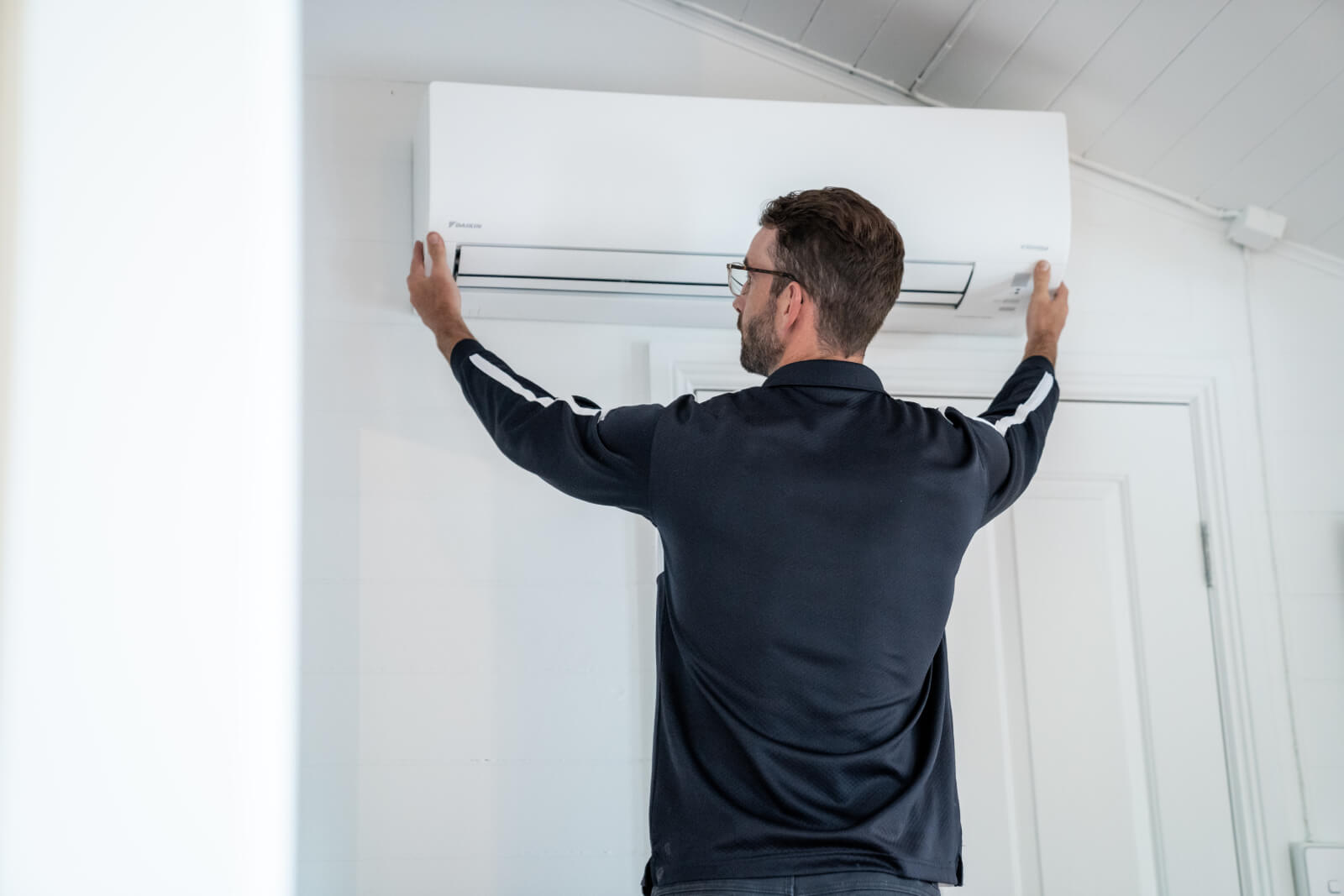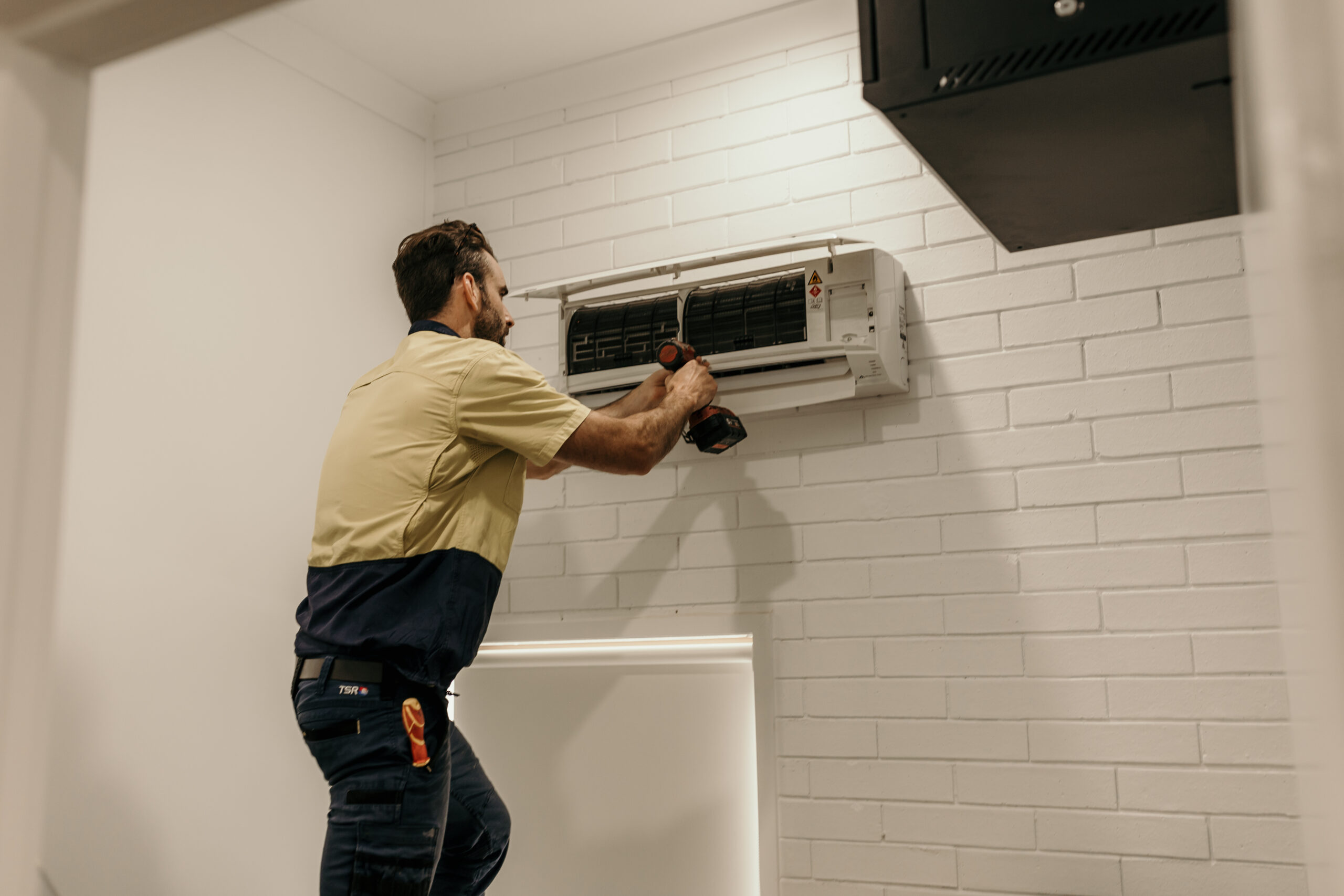The Ideal Temperature For Office Air Conditioners In Qld

In the sunshine state, where temperatures can swing from mild winters to scorching summers, setting an ideal office temperature isn’t just about comfort – it’s about productivity, workplace satisfaction, and meeting your legal obligations as a business owner.
At TSR, we’ve spent decades helping Queensland businesses create the perfect indoor climate, and we’re here to share our expert insights on finding that elusive sweet spot for your commercial office air conditioning.
Understanding Thermal Comfort in the Queensland Context
Let’s face it: Queensland’s climate certainly throws us some unique challenges throughout the year, especially during summer or even humid spring or autumn seasons! While our southern mates are thinking about cranking up the heating, we’re often dealing with humidity levels that would make a rainforest jealous.
That’s why thermal comfort in an office environment doesn’t just relate to the number on the thermostat. Instead, it’s about creating conditions where your team can focus on their work rather than fanning themselves with the latest project report. In particular, when it’s hot in summer, the importance of proper office air conditioning can’t be understated.
The term “thermal comfort” basically means the positive outcomes on the mind that a person experiences in relation to how warm or cold they feel. It’s very dependent on their environment as a result. So, if you want your employees to enjoy being at work more and get more done, considering their thermal comfort throughout the year is necessary.
What’s the Ideal Office Temperature?
Based on extensive research and our years of experience in Queensland offices, the ideal office temperature typically falls between 21.5°C and 24.5°C. However, this range isn’t one-size-fits-all, and several factors can influence the perfect office heating or cooling setting for your workplace:
- Humidity levels (particularly relevant in Gympie and the Wide-Bay and South-Burnett regions)
- Building design and orientation
- Number of staff and office equipment
- Type of work being performed
- Time of day and seasonal variations
In most cases, if you keep temperatures between around 22 and 24 degrees, this should suit the majority of your personnel.

Legal Requirements and Work Temperature Laws, QLD
While Queensland and Australian workplace laws don’t specify exact temperature requirements, they do mandate that employers provide a safe and comfortable working environment for their team members.
Under workplace health and safety regulations, businesses must ensure adequate ventilation and temperature control as part of maintaining a safe workplace.
When it comes to office heating and office cooling, your legal obligations include:
- Providing reasonable thermal comfort for all employees
- Maintaining ventilation systems properly
- Responding to temperature-related complaints
- Having appropriate control measures in place for extreme weather conditions
So, there isn’t a maximum temperature where workers are required to stop their tasks under guidelines for legal working temperatures in Australia. The reason for this, according to Safe Work Australia, is that no single temperature can account for the variety of factors that make working in heat, say, hazardous.
The safe temperature can come down to things like the airflow in the space, the humidity level at the time, the physical intensity and duration of the work, whether personnel are acclimatised to the conditions or not, and their level of physical fitness.
Temperature Impacts on Productivity and Well-being
Research shows that office temperature significantly affects workplace productivity. When the mercury rises above 25°C or drops below 21°C, concentration levels can drop by as much as 10%. On the flip side, according to research from Monash University, workplace injuries occur much more on hotter days. Based on information from 35 years of Australian occupational health data, a day with temperatures reaching 33 to 36°C averages 5.3% more workplace claims than when temperatures remain between 18 and 21°C.
In Queensland’s climate, in particular, proper air conditioning isn’t a luxury but a necessity for maintaining peak performance and avoiding employee injuries and accidents.
Finding Your Office’s Sweet Spot
At the end of the day, you’re going to want to find a temperature or temperature range that suits your workforce and the space they’re in as well as possible. To determine and maintain the ideal temperature for your office, follow these steps:
1. Morning Setup (Start of Business)
- Begin at 23°C during summer months
- Start at 21.5°C during winter months
- Allow 30 minutes for the system to stabilise before staff arrive
2. Throughout the Day
- Monitor humidity levels (aim for 40-60% relative humidity)
- Adjust based on outdoor temperature changes
- Consider different zones for different types of workplace activities
3. Energy Efficiency Considerations
- Use timer settings for automatic adjustment
- Maintain a maximum 7°C difference between indoor and outdoor temperatures
- Ensure regular maintenance of your office cooling and heating systems to ensure optimal system performance
If you’d like some help finding the perfect temperature or range for your office, get in touch with our friendly team. You can also get a quote for a new commercial HVAC system or book a service for your current one.
Common Temperature Control Challenges In and Around Gympie
Queensland’s unique climate presents several challenges in maintaining optimal office temperatures. Key challenges include:
High Humidity
High humidity can make a perfectly reasonable temperature feel uncomfortably warm. Modern commercial air conditioning systems need to effectively manage both temperature and humidity levels to create genuine thermal comfort.
Seasonal Variations
While Queensland’s winters are mild compared to southern states, the temperature swing between seasons can still be significant. Your air conditioning system needs to be flexible enough to handle these variations efficiently.
Mixed-Use Spaces
Different areas of your office may have different temperature requirements. For example, server rooms need cooler temperatures than general office spaces, while reception areas might need frequent adjustments due to doors opening and closing.
Expert Support for Your Office Climate Needs
At TSR, we understand that maintaining the ideal office temperature in Queensland requires both expertise and local knowledge. Our team can help you assess your specific needs and implement solutions that balance comfort, efficiency, and compliance with workplace regulations. Call us today on 07 5482 8100 to learn more about how we can help.
Finding and maintaining the ideal office temperature isn’t just about comfort. It’s about creating an environment where your team can perform at their best while meeting your obligations as an employer. In our challenging climate in Gympie and its surrounding regions, professional expertise makes all the difference in achieving this balance.
Please Share This
Related Posts

Top Reasons Your Air Con Isn’t Blowing Cold Air and How to Fix It

Has Your Air Con Stopped Working In Peak Heat? Here’s What To Do

